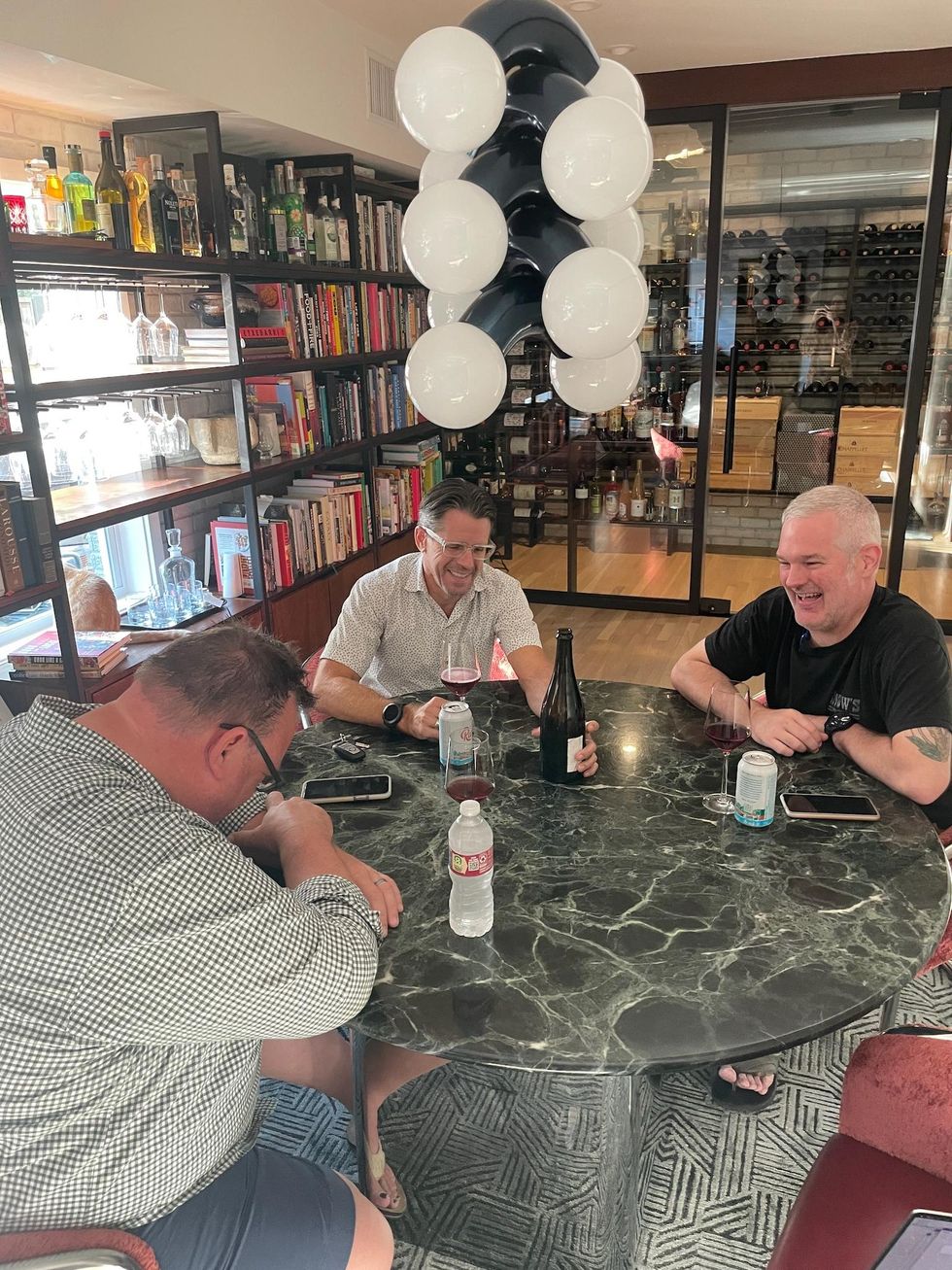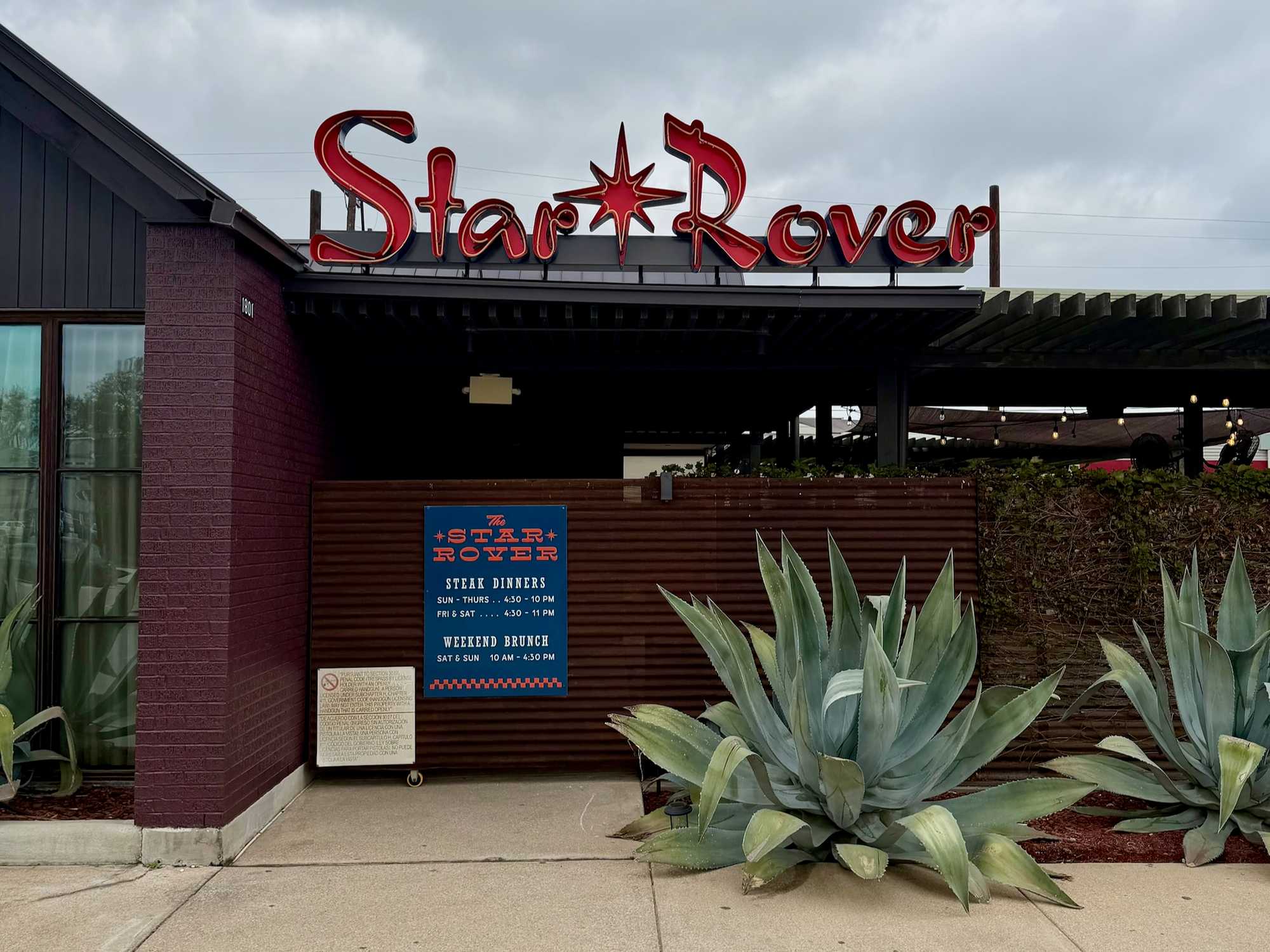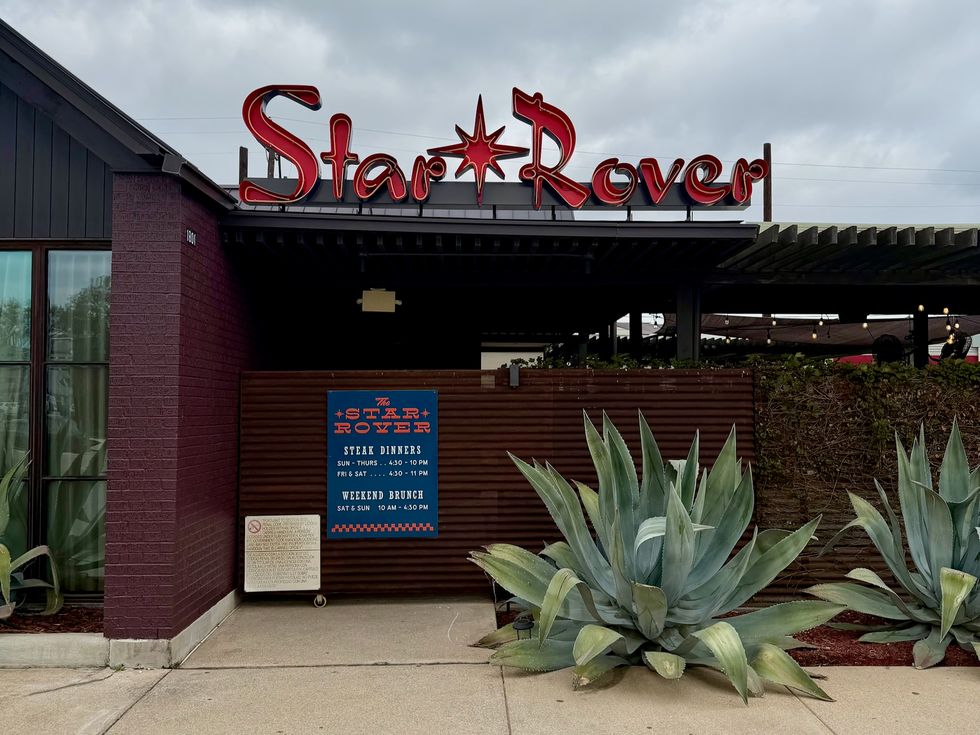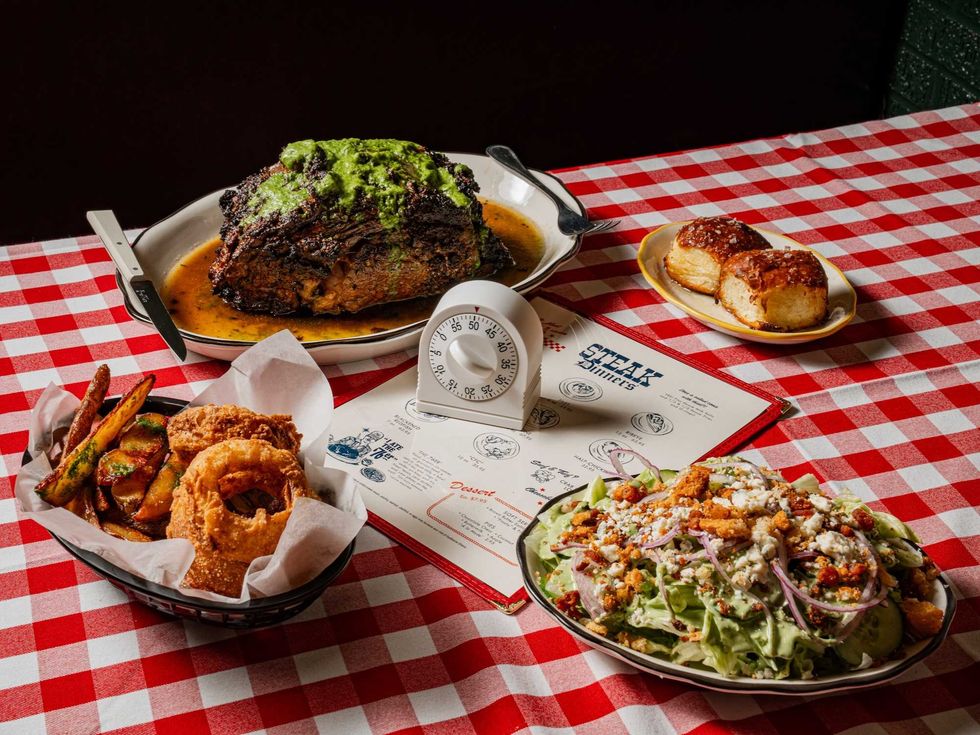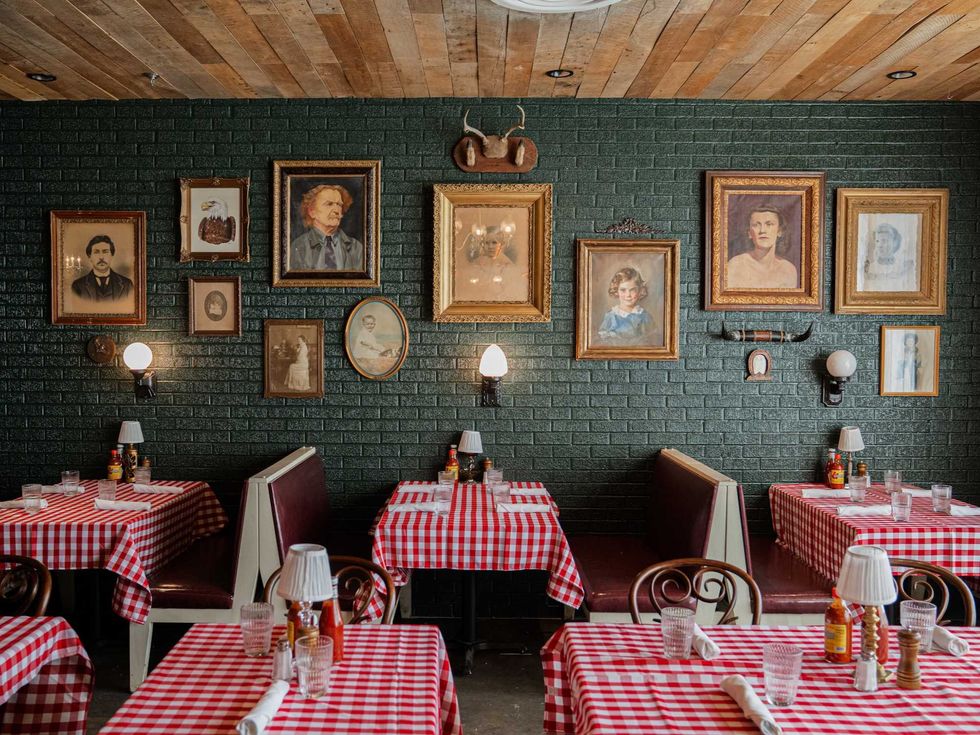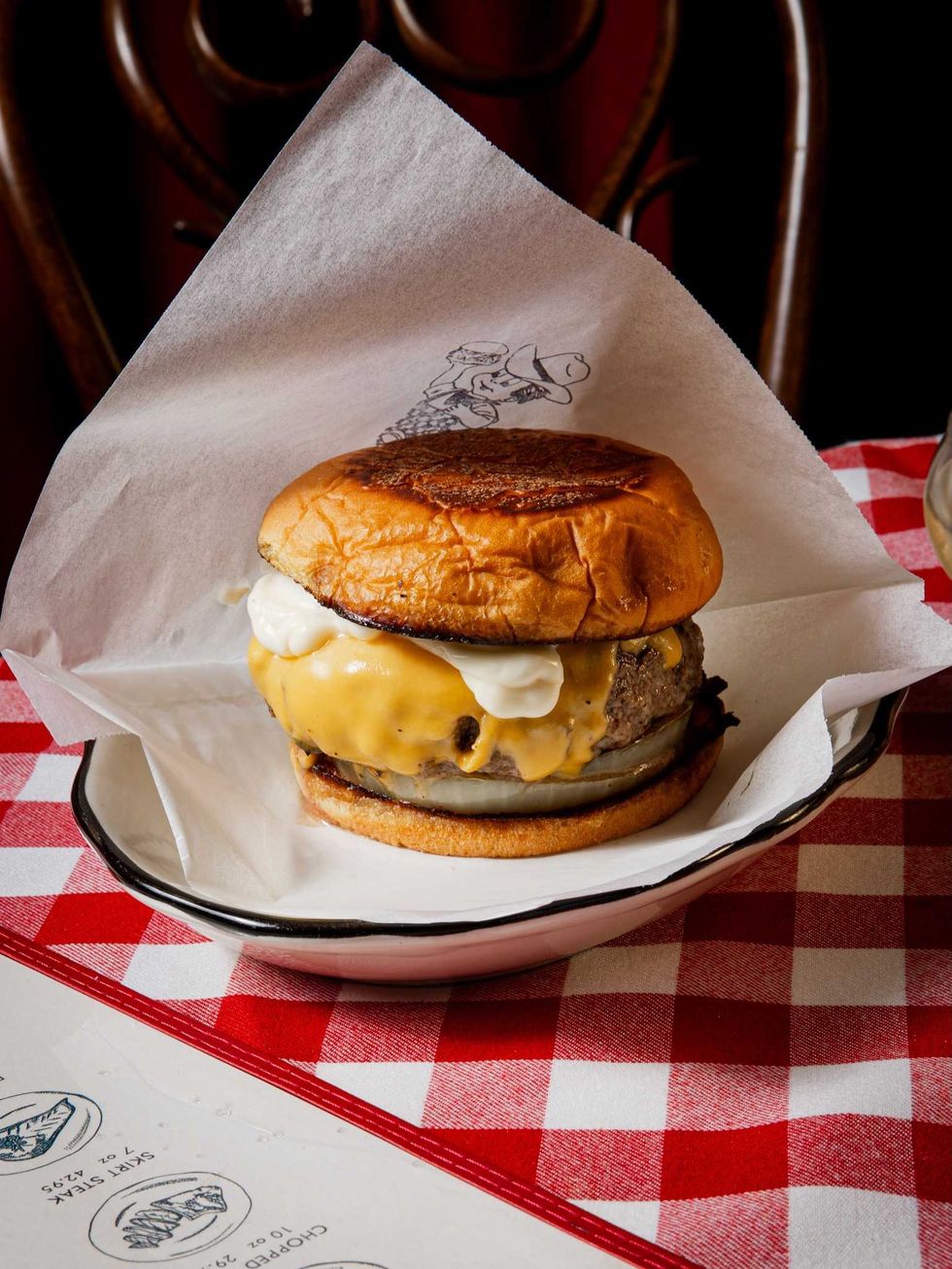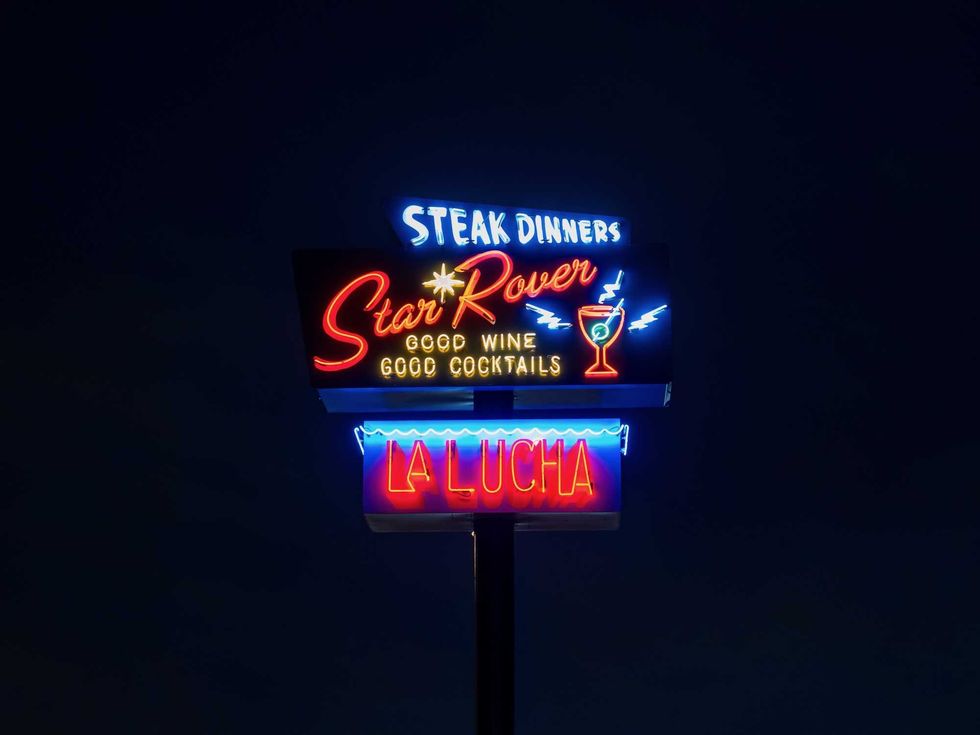wine guy wednesday
CultureMap's Wine Guy Chris Shepherd on why his massive food festival will be so vino-focused
Editor's note: Long before Chris Shepherd became a James Beard Award-winning chef, he developed enough of a passion for wine to work at Brennan's of Houston as a sommelier. He maintains that interest to this day. When Chris expressed interest in writing about wine-related topics for CultureMap, we said yes.
In this week's column, he sits down with two of sommelier friends — Houston Wine Merchant manager Antonio Gianola and Southern Smoke Foundation wine director Matthew Pridgen — to discuss wine's role in the upcoming Southern Smoke Festival (October 21-23). Take it away, Chris.
----
Chris Shepherd: We’ve known each other for a long time. We started working together in 2006 when Catalan opened. [Catalan was a restaurant on Washington Avenue where Chris was the executive chef and managing partner, Matthew was general manager, and Antonio was sommelier and managing partner.]
Antonio Gianola: I first met you at a Kistler tasting at Mark’s.
Matthew Pridgen: That’s going back a few years! Antonio, where did we meet? You were at Da Marco when I was at Mark’s. I’m guessing probably at a tasting.
AG: I remember you came to Da Marco on a date with Cindy, and Melissa and I came to Mark’s for her birthday.
CS: I get to sit at this table and watch two of the great wine minds of this city. After Catalan, Antonio went to Houston Wine Merchant, and Matt and I went to open Underbelly.
Let’s talk Southern Smoke. How did we get here? We were doing those Off the Wall dinners at Underbelly raising money for culinary scholarships. We had restaurants around the city come in and cook together. Antonio came in and was the Wine Guy for those dinners.
AG: Pairing and going back and forth with chefs is something I don’t really get to do anymore, and I had fun!
CS: I’ll never forget the night you came in and asked me if we could do a dinner for the MS Society. You said you’d been diagnosed.
AG: I decided to tell people because I’d heard another industry story the night before my diagnosis. I was told a story about a chef who was diagnosed, didn’t tell anyone, and ended up committing suicide. I’m not sure if I’d have told anyone about my diagnosis if I hadn’t heard that story.
CS: That took a lot of guts to do that — to come out and say “let’s do something. I want to be talked about. I can be the poster child for the industry.”
I didn’t know what MS was. I called the MS Society and asked them to explain it to me. And they said it’s like you take a clothes pin every day and randomly put it on nerves — every day is different.
AG: Will it be balance or vision or sensation or neuropathy? You don’t know. I was 42 when I was diagnosed, which is really uncommon to be diagnosed that late in life. I was training to ride the MS 150, and my sister was diagnosed with MS in 2010. During training, I was doing a 65-mile ride every Sunday. One day I rode 75 miles and ran out of energy. I took a nap, and I had carpal tunnel-like things happening with my hand. I went to a sports medicine doctor, and then got an MRI. And another MRI. You know it’s bad when they call you to the doctor’s office for your results. A neurologist told me in person I had MS.
CS: How are you doing now?
AG: The whole thing has been very consistent. The doctor told me I had the best case scenario. MS isn’t heredity but my father’s sister had it, and my little sister has it.
CS: When you came and talked to me that night, I knew we needed to do something bigger [than another wine dinner]. That first Southern Smoke Festival was really special.
MP: It’s crazy to think we actually pulled it off.
CS: Susan Christian at the Mayor’s office changed it all! She turned a dinner into a festival. And all the vendors she introduced us to are still with us today — Greg Bess and Melange Catering, LD Systems. The community really came together for us. We’d participated in a lot of festivals, and we knew that a lot of them served wine that we didn’t want to drink. Since Southern Smoke was inspired by a sommelier, it was a goal for us to serve good wine.
MP: If you start looking for ways to make money, you find yourself pouring wines you’d never drink at home or sell at your restaurant, and we knew we didn’t want to do that. At the time of our first festival, my job was to taste and buy wine — not ask for free wine. I approached every vendor we worked with, told them what we were doing, and why we were doing it. They could relate to the Antonio connection. We got six bottles from one winery, three bottles from another. I took all the donations and figured out what we poured and what we auctioned.
It started really organically, and now we have people approaching us wanting to help. I think it will only get better as we go on. We’re really fortunate that we got off the ground the first year. We had no history. We just went on our reputation and who we were.
CS: That first year, we saw all the Miner, all the Hirsch. If you drank a glass of wine at the festival, it was something badass and different each time you got a glass.
AG: Every bar had something different!
CS: Harvey changed a lot for us. It changed our mission to provide emergency relief to folks in the industry. Our first emergency relief grant after Hurricane Harvey was for fire relief in Napa and Sonoma. And Robert Sinskey Foundation — a winery who has donated to us since year one — is funding our new mental health program in California. So thanks to our friends in the wine industry, anyone in the food and beverage industry in California and their kids now has access to free mental health counseling.
AG: What a coincidence! Sinskey was the first winery I ever saw crush during my very first trip to California.
CS: Wine brings people together. It’s a communal thing. I couldn’t imagine this festival without wine. I’m glad this event has always been wine-focused.
MP: We have a lot of repeat donors this year. The auction is going to be amazing. We’re offering a weekend in Napa as an auction item with Colgin, Bryant Family, and Sinskey. We’re auctioning a week in Burgundy with Antonio and Bertand’s wines. We’ll have special bottles that aren’t available anywhere else: signed magnums; a vertical of Bryant Family Wines; a vertical of Hirsch Raschen Ridge Magnums.
I love that the Friday night event is focused on Texas wines. We’re trying to figure out a way to differentiate the events and make them unique in their own way, so we wanted to take the opportunity to promote some Texas wineries and wines made by Texans. We’ve focused on wines that are doing cool things: William Chris, Alta Marfa, Southold Winery, June’s Rosé, Duchman, Becker, and C.L. Butaud.
For Saturday’s event, we’re focused on grower Champagnes and wines from Sinskey.
MP: Jasmine Hirsch will be pouring both her wines and Cruse Wines in the VIP area on Sunday. We’ll also be pouring Miner in the VIP area — both Jasmine and Dave Miner have supported Southern Smoke since the beginning.
CS: Matt, you have a new job as wine director of Southern Smoke. That sounds fun! [Editor's note: Pridgen had been wine director for Underbelly Hospitality.]
MP: I’m super excited that we’re growing the foundation in a way that can help more people. Having been involved since its inception, I’m honored and excited to be able to grow the mission. It’s different than the restaurant industry, but I’m still working with people I’ve formed relationships with through the years, so I’m really excited about that.
CS: We started this as a wine-focused event, and it will always be a wine-focused event. Back at Catalan, we used to trade off who was pairing wines and who was cooking! Food and wine are ingrained in our souls.
This festival is showing a side of the three of us — inviting people into our home. We’re raising money for good, and it’s why people want to donate their time, wine, and food. It’s why people should come. Plus, the wines will be delicious!
-----
Contact our Wine Guy via email at chris@chrisshepherdconcepts.com.
Chris Shepherd won a James Beard Award for Best Chef: Southwest in 2014. He recently parted ways with Underbelly Hospitality, a restaurant group that currently operates four Houston restaurants: Wild Oats, GJ Tavern, Underbelly Burger, and Georgia James. The Southern Smoke Foundation, a non-profit he co-founded with his wife Lindsey Brown, has distributed more than $10 million to hospitality workers in crisis through its Emergency Relief Fund.
